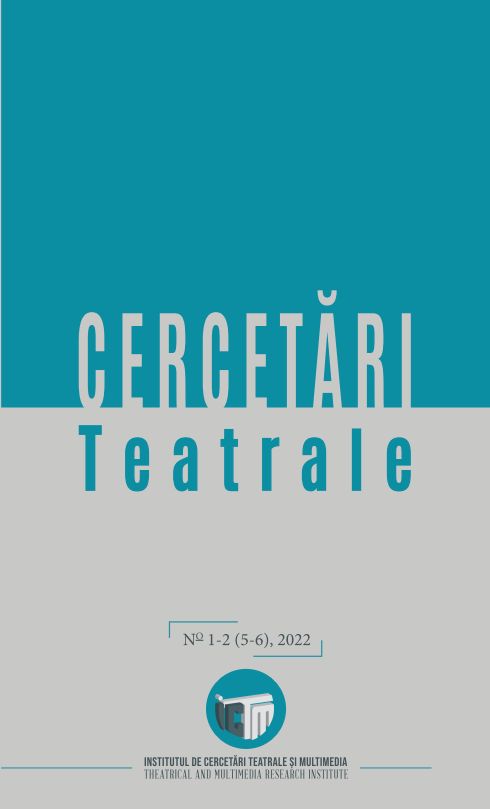Denominalizarea și doimea divin-demonică a Marelui Anonim
The Domination and the Divine-Demonic Duality of the Great Anonymous
Author(s): Violeta ZonteSubject(s): Philosophy, Theatre, Dance, Performing Arts, Romanian Literature, History of Religion
Published by: UArtPress - Editura Universității de Arte din Tîrgu Mureş - A Marosvásárhelyi Művészeti Egyetem Kiadója
Keywords: denomination; secondness; Blood Brother; Non-blood brother;
Summary/Abstract: The domination and the divine-demonic duality of the Great Anonymous In its capacity as the metaphysical Center of the world, the Great Anonymous is also the Central Mystery, generator of an infinite variety of mysteries. Overwhelmed by the fear of a pernicious self- generation, by the danger of the appearance of “equivalent Gods“, the Great Anonymous avoids thinking positively about himself. That’s why he opts for the apophatic paradigm, defining himself by an infinity of unknowns, undisclosed and above all unnamed secrets. The denomination of the Great Anonymous is a paradoxical epistemological solution, but not an agnostic one; because through the series of negative statements, the philosopher defines what the Central Mystery of the world is not and never what it is. The nominalization of the transcendent is also present in Blaga’s dramatic work, so that God is generically called Old Man, in Noah’s Ark and Turbulence of the Waters, or the Blind Man in Zamolxe. The Old Man without a name heats up the minds of the judges (from “Noah’s Ark”): “Are you so sure that the Old Man was – the one without a name?”. Profoundly analogous to his own creation, the Great Anonymous willfully degrades and mutilates his reproductive capacities. Therefore, the world is “a mutilated Story”, and man “a mutilated God”. Violeta-Simona ZONTE The demonic side of the Great Anonymous manifests both through the anti-creative paroxysm and through the blocking of man’s access to the absolute. Using “his cherubic lieutenants”, censorship and transcendent restraint, the Great Anonymous condemns the man, from the pre-genetic state, to the ontological imperfection. The divine-demonic secondness of the Great Anonymous is reflected in the dramaturgy through the conflicting identity between God and Satan, between the Blood Brother and the Non-blood brother.
Journal: Cercetări teatrale
- Issue Year: 3/2022
- Issue No: 1-2
- Page Range: 15-30
- Page Count: 6
- Language: Romanian

